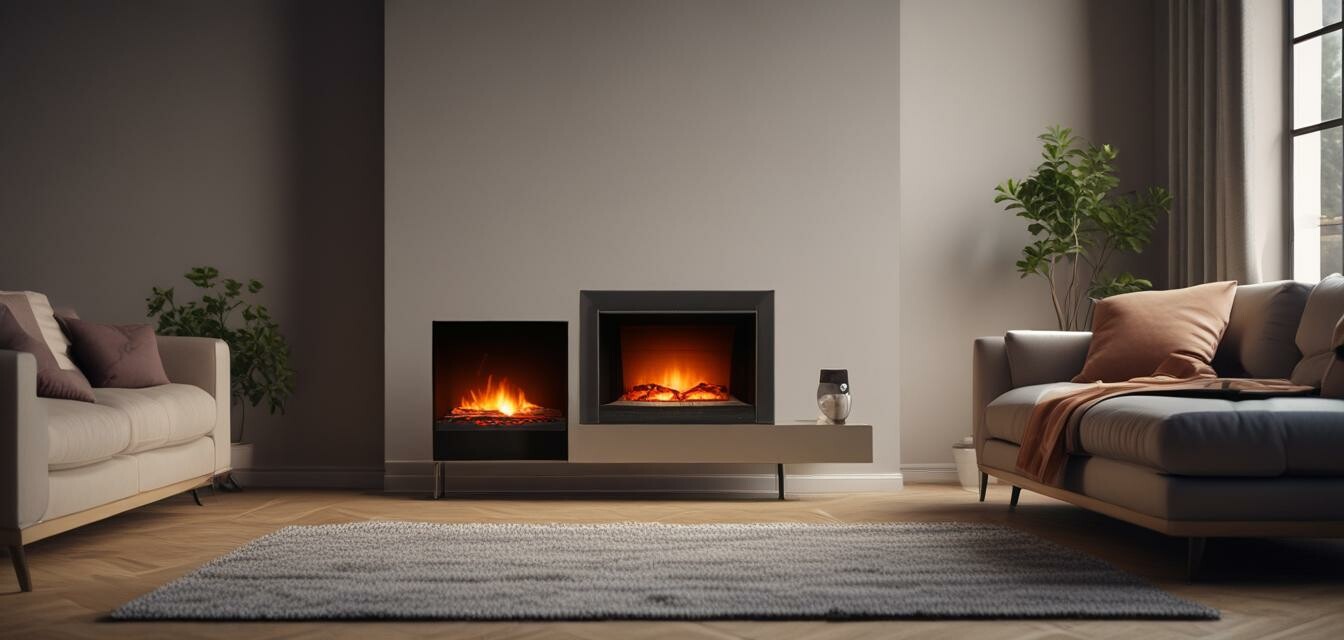
Consumer Preferences in Wifi Heater Features
Key Takeaways
- Most consumers prioritize energy efficiency and cost-effectiveness.
- Smart home integration is becoming a highly sought-after feature.
- Portability and ease of use are key factors influencing buying decisions.
- Brands are focusing on aesthetics to appeal to modern homeowners.
- Consumer feedback is driving the development of new features in wifi heaters.
As the world becomes increasingly influenced by technology, the landscape of home heating solutions is evolving. This article analyzes the current consumer preferences regarding the features of wifi heaters and how brands are responding to these trends. With growing interest in energy-efficient solutions, smart integrations, and design, the wifi heater market is positioning itself to meet the demands of modern consumers.
Understanding Consumer Preferences
Consumers today are more aware of their environmental impacts and are looking for solutions that help them save energy. Here’s a breakdown of prevailing preferences:
| Feature Preference | Importance Level (1-5) |
|---|---|
| Energy Efficiency | 5 |
| Smart Home Integration | 4 |
| Portability | 4 |
| Aesthetics | 3 |
| Ease of Use | 5 |
Key Features That Matter
Here are some of the top features that consumers are now seeking when considering wifi heaters:
- Energy Efficiency: More consumers want wifi heaters that lower their energy bills while providing effective heating.
- Smart Home Compatibility: Many users desire integration with existing smart home systems like Amazon Alexa or Google Assistant.
- Remote Control: Having a mobile app to control their heater from anywhere is increasingly important.
- Portable Designs: Consumers appreciate heaters that can be easily moved from room to room.
- Stylish Appearance: Today’s consumers want products that match their interior design themes.
Brand Responses to Consumer Demands
Brands have taken note of these preferences and are adapting their products accordingly. Here's how:
| Brand | Feature Offered | Consumer Feedback |
|---|---|---|
| Brand A | Smart Home Integration & App Control | Highly rated for ease of use |
| Brand B | Energy-efficient Settings | Positive responses on cost savings |
| Brand C | Sleek Designs & Colors | Well-received aesthetic appeal |
Emerging Trends
With the changing landscape of consumer preferences, here are some emerging trends among the wifi heater market:
- Increased Use of Renewable Energy: Brands are looking at solutions that can be powered by renewable sources.
- Enhanced Connectivity: Improved app features, voice controls, and connectivity options.
- Customizable Settings: Options for personalized heating schedules and room-specific settings.
Conclusion
As consumer preferences evolve, brands in the wifi heater market are responding dynamically. By understanding what features consumers value most—such as energy efficiency, smart integrations, and stylish designs—brands can better position themselves to meet these demands. For those looking to keep up with the latest trends in home heating, ensure to explore our knowledge-dedicated sections for updates on wifi heaters and other buying guides to make informed decisions.
Pros
- Meets modern consumer expectations with smart features.
- Offers potential cost-saving advantages.
- Appeals to diverse aesthetic preferences.
Cons
- Higher upfront costs compared to traditional heaters.
- Requires a stable Wi-Fi connection for full functionality.
Stay Updated
For those interested in more information, check out our Energy-Efficient Wifi Heaters or explore our Portable Wifi Heaters to suit your needs. Join us as we delve deeper into the trends in home heating.